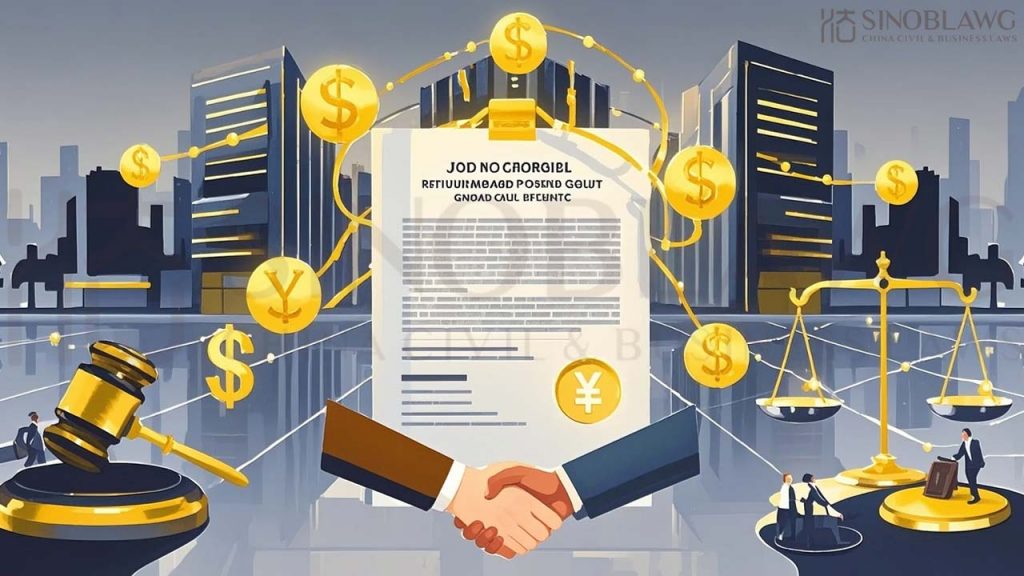Facts: a limited liability company (“LLC”) incorporated in 2013 in China has two shareholders with the majority shareholder having 60% of equity interests (there is no share in a China LLC, and equity is expressed in percentages), and the minority shareholder having 40%. The Company has a three-member board of directors with the majority shareholder appointing two and the minority shareholder appointing one. As a common phenomena, the LLC’s articles of association (the “AOA“) is a standard form borrowed readily from the internet. With the elapsing of the honeymoon period, the relationship between the shareholders deteriorated quickly with the majority shareholder taking over the full operation of the company with the minority shareholder being marginalized with no say in the management company. The accountant that was appointed by the minority shareholder was forced to resign from his job leaving minority shareholder cut out having no easy access to the company’s financial affairs. Major investment decisions such as setting up two subsidiary companies to develop two parcels of land was made by the company without holding shareholder meetings. With no hope in sight, the minority shareholder wants to do something about the situation. So he came to me for help.
Legal Remedies: as it may sound pathetic and pitiable, China Company Law offers no effective remedies for such minority shareholders trapped in a limited liability company.
(1) Enforce right in corporate management?
At both shareholder level and director level, there is no way for the minority shareholder to change the status quo. Once an ill-drafted articles of association is signed by all shareholders at the time of incorporating the LLC company and filed with company registry authority, then the rules regarding the corporate management is ironed. Unless the AOA has particulars conferring special power to minority shareholder to change the corporate governance structure, the China Company Law does not allow any hope for such minority shareholder.
The operation of AOA of a LLC company under China company law is worthy point of note for investors in China. Its initial effectiveness at the inception of the company requires the unanimous consents from all shareholders in the company, but once the company is set up, the amendments to the AOA will no longer require unanimous consents from all shareholders, but subject to two thirds of the plenary voting powers. In other words, if the majority shareholder controls more than two thirds of the voting power, alone or in concert with others, the majority shareholder can always do anything about the AOA provided that he cannot directly do anything to harm the interests of the minority shareholder.
Now the general rules in respect of (if not excluded or modified by AOA) under China Company Law are most corporate matters will be decided by a simple majority vote at both shareholder meeting or the board meeting (as a mandatory rule, each director has one vote), except for the following matters that shalll require a two thirds vote at the shareholder meeting:
(1) amendment to the AOA;
(2) decrease or increase of registered capital;
(3) merger, division or liquidation of the company; and
(4) change of corporate form (LLC to company limited by shares or vice versus).
It shall be noted that under China Company Law, the sale of company’s major assets does not require a two thirds absolute majority of shareholder voting to clear the way. This is a big loophole of the law allowing the controlling shareholder to transfer covertly the company’s profits making assets to defraud or shake off the minority shareholders.
(2) Exit and Escape the Plight
So when there is no way to participate and influence the corporate operation of the company, then it is probably the best way to get rid of the dilemma by exiting the LLC company. So what options does China Company Law afford to minority shareholder to exit an oppressive LLC Company?
(a) Equity Transfer
As a normal way of exit, the minority shareholer may think of selling out his equity interests in the LLC company to third party. But a LLC company is a closed company with no public market for selling the equity interests. In practice, shareholders of LLC companies are often people who know each other, the so called trust-based organization. Given the client’s dilemma, he will have to find someone who is not smart to take up his equity interests while offering him a reasonable consideration.
(b) Repurcahse by the Company
Yeah, you may have another idea: how about asking the company to repurchase the equity interest of the minority shareholder? Yes, Article 74 of China company law does provide for the repurchase by a company of its own shares or equity interests held by dissenting shareholders at a reasonable price, but only in the following circumstances:
(i) the company has made profits which are distributable under the laws, for five consecutive years but the company refuses to make distribution;
(ii) the company is a party to a merger or division or it sells its major assets;
(iii) the term of operation of the company expires or the event of dissolution set out in AOA arises, but the shareholder meeting resolves to amend the AOA to continue the company.
The dissenting shareholder shall sue the company within 90 days of the resolution by the shareholder meeting if he cannot come to an agreement with the company regarding the repurchase of his equity interests. The provision does not get clear how the “reasonable price” shall be determined.
In light of the case outlined above, the client cannot rely on this provision to request the company to repurchase its shares. In practice it is very easy for the majority shareholder to manipulate the accounting books to ensure profits for five consecutive years will not take place.
(c) Dissolve the Company – the Drastic Resort
Now, if we cannot live together well, let us go die together. The most drastic measure the minority shareholder may resort to is to dissolve the company and wind it up.
In China Company Law, a company may be dissolved for the following reasons:
(i) term of operation expires or a dissolution event (as stipulated in AOA) arise;
(ii) shareholder meeting resolves to dissolve the company;
(iii) the company is merged or divided;’
(iv) business license is revoked or ordered to close by authority; and
(v) the court dissoves the company because of deadlock situation.
In the case in question, the client can only rely on (v) to dissolve the company. As for corporate deadlock, you can also refer to an older post: corporate deadlock – a reason to dissolve your China company.
The application of this corporate deadlock doctrine is very stringent and courts are reluctant to kill a live company simply because of a deadlock. So as required by the provision of the company law, the party seeking to dissolve the company caught in corporate deadlock shall firstly try to exhaust non-judicial ways to resolve their disputes failing such a settlement can the shareholder sue to court to dissolve the company.
Again, since the shareholder meeting and board meeting can be held and make valid resolutions, there is no corporate deadlock, and the minority shareholder in our case can do nothing about the situation.
(3) Other Practical Approaches
So what can we do to help the minority shareholder? Well, as discussed above, there is really not much we can do to tackle the dilemma directly and help out the client. In practice, the client can think of the following actions to undermine the status quo:
First of all, sue the company to access to the corporate accounting books to gain a clear picture about the company’s financial conditions. In China, it is a pervasive phenomena that majority shareholder will abuse its controlling position in running the company such as conducting self-dealing businesses at unfavorable terms, embezzling corporate funds etc.
Once the findings of the accounting books check produce good legal grounds to attack the majority shareholder, then accordingly take other legal actions normally, the shareholder derivative actions, against the majority shareholder, causing pain to it with a view to force it to come to table for a talk.
If the financial check can find clue leading to criminal liability, the minority shareholder now has a trump card.
So the legal action to access the corporate financial information is crititcal and requisite for the minority shareholder to battle with majority shareholder.
Lesson to Learn
Finally, there is a good lessen to learn from the case and the legal analysis above: think ahead and work on the articles of association of the company from the outset when you invest in a China limited liability company.
Many things before you commit yourself to an investment in a LLC shall be considered and addressed in the Articles of Association which is the major document in incorporating a company in China and the major document that can afford protection to minority shareholders.
Of course, besides the articles of association, legally speaking, the shareholder agreement with the majority shareholder in private can be also a valid instrument to protect the minority shareholder in which the minority shareholder can ask the majority shareholder to purchase his equity interests in certain circumstances.
For a more detailed discussion of minority shareholder rights under China Company Law, you can also refer to another post on this blog: rights for minority shareholder under China Company Law.







Very interesting, and useful, Jason.